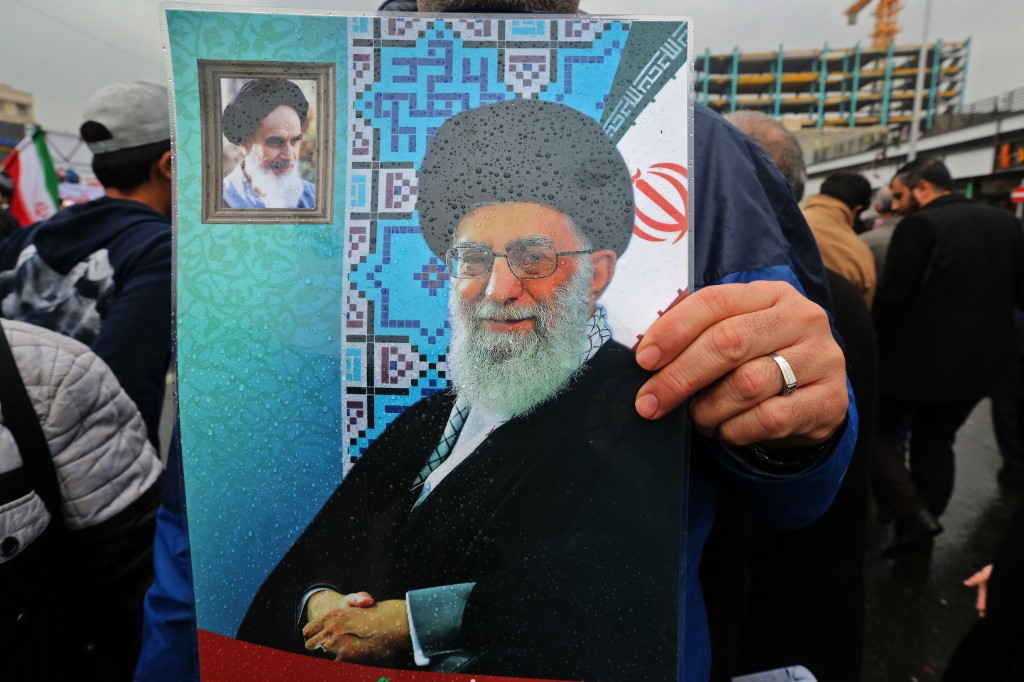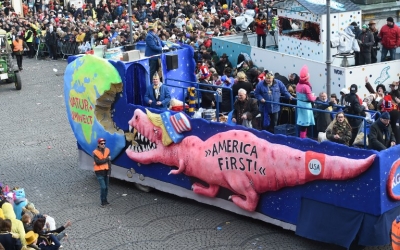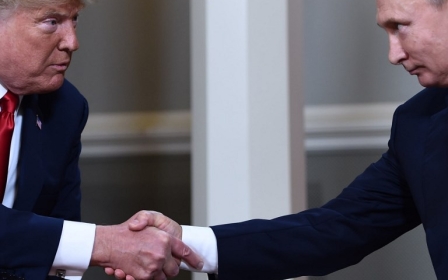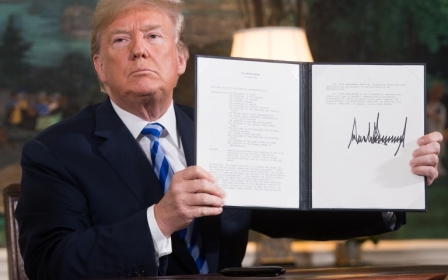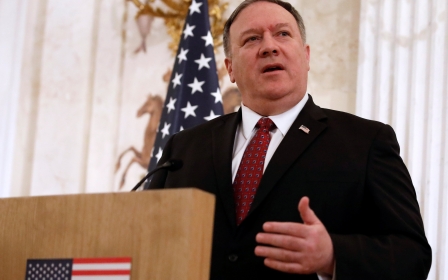Is a new world order emerging to replace US hegemony?
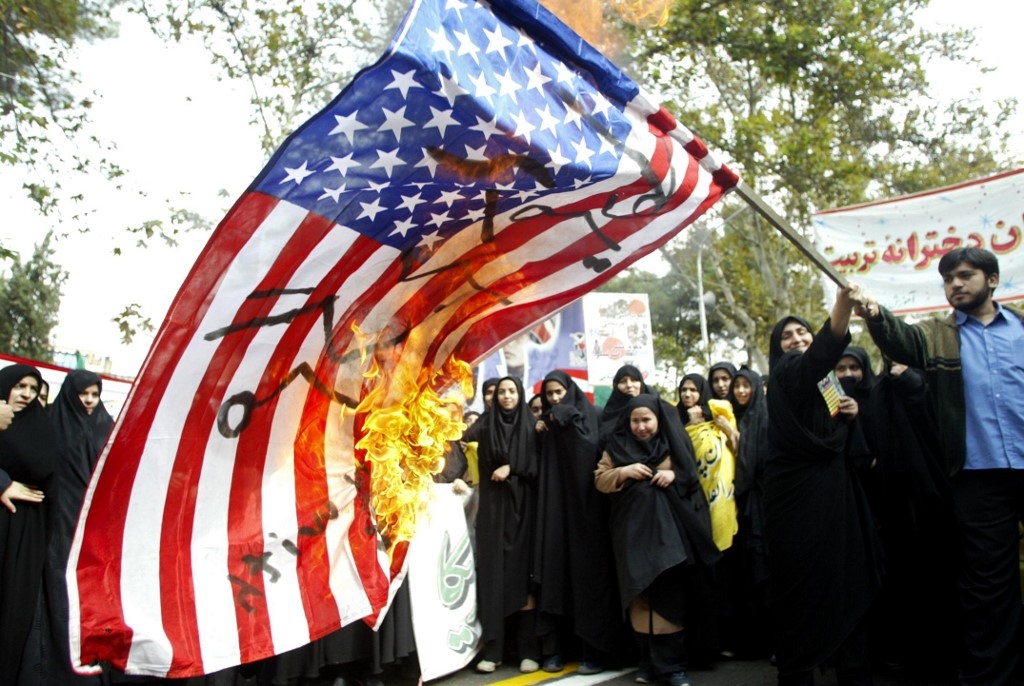
China’s global rise and Russia’s renewed assertiveness are stimulating heated debate about the endurance of the so-called liberal world order, led by the United States.
This global confrontation has many facets: clashes in the Middle East, Ukraine and the South China Sea; US and EU sanctions against Russia; the trade war against China; cyber-warfare, 5G and telecommunications network security tensions; the Venezuelan crisis; China’s Belt and Road Initiative; and, last but not least, the search for an alternative financial system to the Western one and unhooked from the dollar.
There is a debate on the current international rules - whether they should be changed, how and by whom. After the 1945-1991 bipolar world order, followed by the unipolar American one, is an increasingly multipolar, culturally diversified world order, unhindered by Washington’s leadership, finally emerging?
The Iranian revolution
Russian President Vladimir Putin’s speech at the 2007 Munich Conference on Security Policy, the 2008 financial meltdown, Xi Jinping’s 2013 rise to power in China and subsequent launch of the Asian Infrastructure Investment Bank and the Belt and Road project, and the European populist wave, are considered crucial steps towards such a transition.
New MEE newsletter: Jerusalem Dispatch
Sign up to get the latest insights and analysis on Israel-Palestine, alongside Turkey Unpacked and other MEE newsletters
But longer before the emergence of these new multipolar forces, it was Iran - through its 1979 revolution - that launched a systematic challenge to the Western liberal world order.
The revolution launched a religious, political and social model that was an affront to the Western, secular political model. It combined two seemingly irreconcilable elements: theocracy and democracy.
The West never reconciled itself with the notion that a popular revolution could have produced a religious, conservative government
Ayatollah Khomeini conceived a government legitimated both by God and by popular sovereignty through a republican system. Iran’s subsequent history, including its troubled relationship with the West, has revolved around the tensions generated by these two interacting, opposite poles, ultimately creating an unbridgeable comprehension gap.
The West never reconciled itself with the notion that a popular revolution in our contemporary and secular world could have produced a religious, conservative government.
All of a sudden, Iran began to challenge centuries of enlightenment thought. Just as the Soviet Union was entering in its final agony, leading to its collapse a decade later, Iran introduced a new challenge to Western liberal capitalism and secularism.
The problem of ‘Westoxification’
Iran’s society and religious establishment have always nurtured a powerful sensibility against foreign-imposed models. Throughout the 20th century its independent development was thwarted and undermined by the West and its allies, strengthening this view of Iran's relationship with the West as one based on confrontation and hegemonic oppression.
This evolved into a national identity built upon resistance against foreigners, especially Westerners, known as gharbzadegi (a Farsi term meaning "Westoxification"), which blames the fascination with and dependence upon the West for harming traditional, historical and cultural ties to Islam.
It advocates against indiscriminately imitating the West, cited the alleged dangers of moral laxity, social injustice, secularism, devaluation of religion and obsession with money.
Forty years later, to a certain extent, some constituencies of Americans, European populists, and, most of all, Russian and Chinese leaders, now share similar views about the Western liberal system’s shortcomings.
Ultimately, the sunset of the 20th century and the dawn of the 21st have been indelibly marked by terrorism and its consequences. As eminent British historian Michael Axworthy, who recently and prematurely passed away, brilliantly argued: “After 1979 we can no longer work on the assumption that the history and culture of the Middle East are irrelevant.”
A moral imperative
In the last four decades, Iran has become one of the main challengers to US leadership, through systematic opposition to Washington’s policies and interests in the Middle East.
What the West purports to know about Iran is often misleading or simply false, but Tehran’s policies must be assessed in the proper framework to avoid hasty or inaccurate stereotypes.
Iran’s nuclear ambitions and regional meddling have been a constant source of concern for the US and its European and Arab allies, while for Tehran’s revolutionary leadership, this is a form of forward defence against perceived regime-change projects, apparently nurtured in Washington, Jerusalem and Riyadh.
Western pundits have ignored or underestimated the fact that Iran’s policies have also been determined by religious duty, deriving from the reinterpretation of Imam Hussein’s martyrdom at Karbala in 680 CE and the subsequent politicisation of Twelver Shiism promoted by Ali Shariati and Ayatollah Khomeini.
In this framework, the Palestinian question and the historical predicament of Shia communities in many Arab and Islamic countries (Lebanon, Iraq, Saudi Arabia, Kuwait, Bahrain, Yemen and Pakistan) have been framed as forms of oppression and injustice deserving of revolutionary mobilisation.
For Iran, opposition to the Western US-led model and its related policies - considered the main drivers of global oppression and injustice - has become a sort of moral imperative.
So far, it has been surprisingly effective in fuelling the perception of Washington’s decline, through a relentless and successful challenge against the latter’s plans in the Middle East.
The views expressed in this article belong to the author and do not necessarily reflect the editorial policy of Middle East Eye.
This article is available in French on Middle East Eye French edition.
Middle East Eye delivers independent and unrivalled coverage and analysis of the Middle East, North Africa and beyond. To learn more about republishing this content and the associated fees, please fill out this form. More about MEE can be found here.



